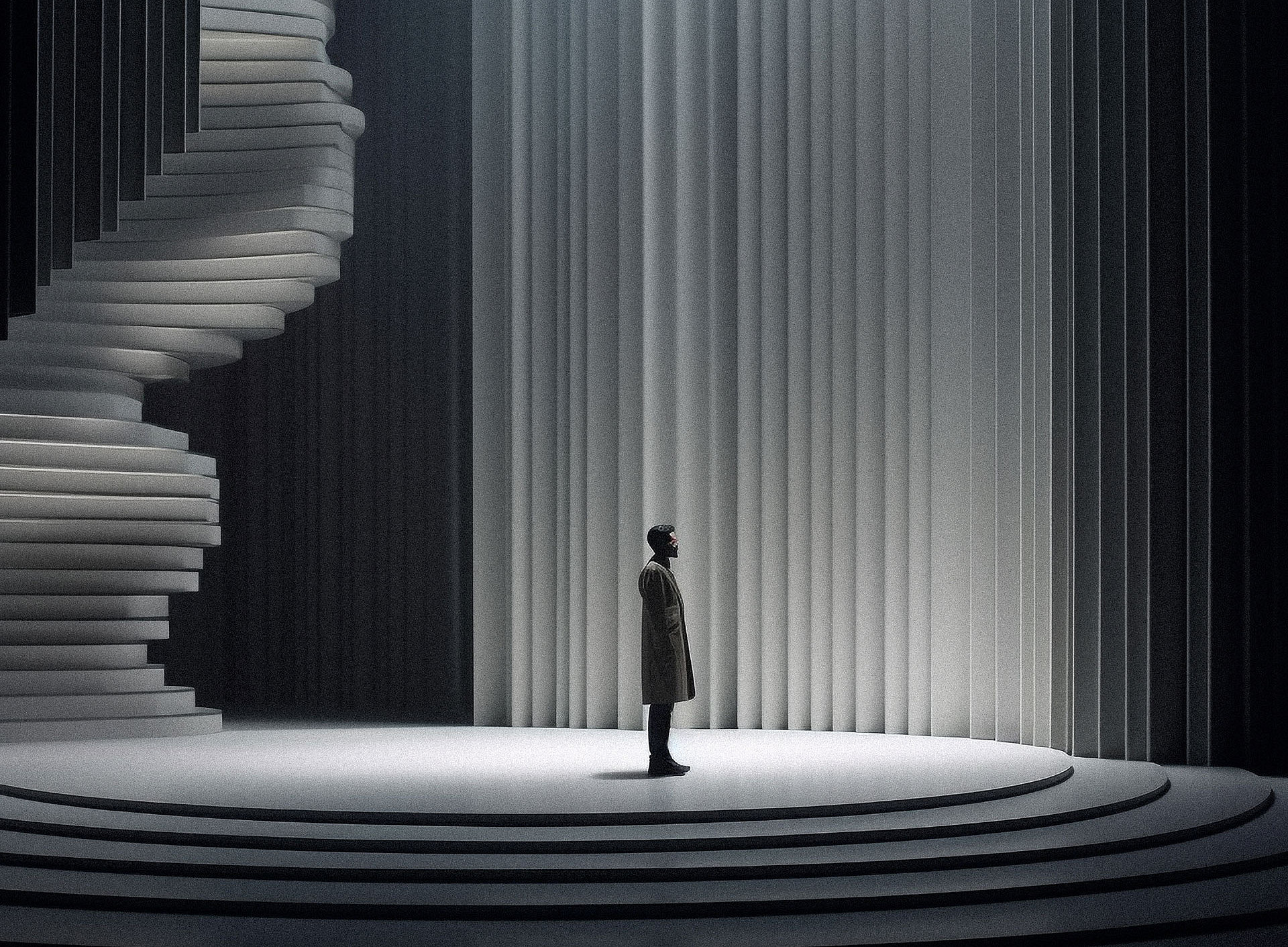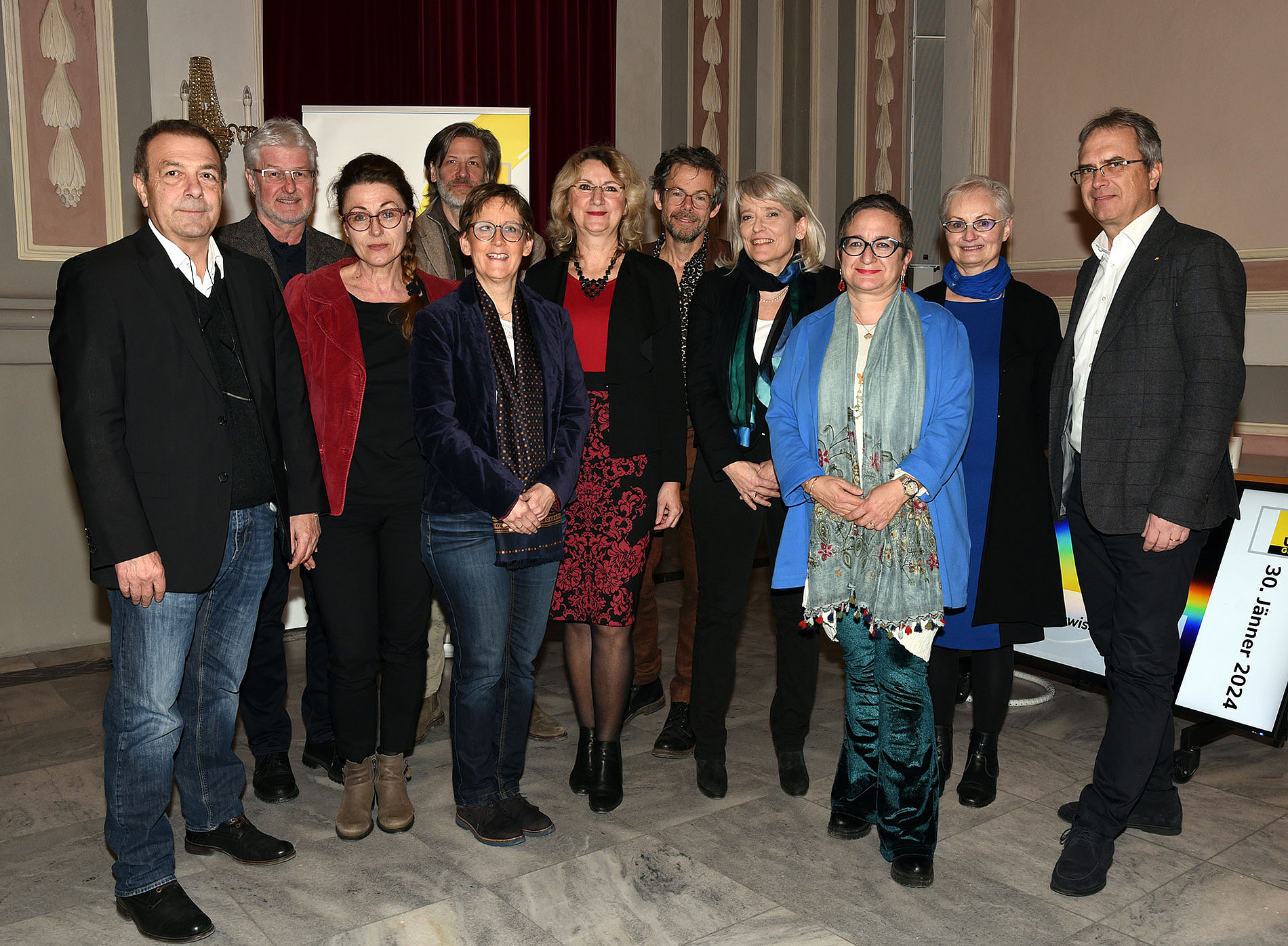In the horror film, echoing footsteps turn the hallway into a place of fear. The cellar, where only muffled voices can be heard from outside, becomes a prison. And the whistling of the wind transports the lighthouse keeper's cottage to the end of the world. From creaking attics to a dungeon into which a steady drip falls - the connection between space and sound also has archetypes that recur in films. An international conference at the University of Graz in May 2024 will provide impetus for new research projects.
Three new core topics
Julian Blunk presented the topic of the conference on 30 January 2024 at the Humanities Day in the Meerscheinschlössl at the University of Graz. He presented an exemplary research project from the faculty's new core topic, which deals with the significance of perception in the context of cognition, aesthetics and politics. Another is dedicated to current issues surrounding multilingualism, migration and cultural transformation. And a third deals with movements and relationships in the Mediterranean region and beyond - from antiquity to the present day. These two core topics were also presented on 30 January.
"On the one hand, the focussing of the humanities is intended to further expand expertise on particularly current and exciting topics and intensify international, interdisciplinary cooperation in research and teaching. On the other hand, it should make the importance of humanities research for society even more visible," says Arne Ziegler, Dean of the Faculty of Humanities, about the idea behind the new core topics.
Many perspectives
If you want to understand the world, you have to look at it from different angles. In science, this means that researchers from different disciplines come together and contribute their perspectives and expertise in order to find answers together. This is exactly what is happening in the new core topics.
The humanities at the University of Graz are characterised by a great diversity of subjects: from philosophy to history, from linguistics to musicology. 15 departments and seven research centres are part of the Faculty. The range of degree programmes is correspondingly large. "The core topics, which reflect this diversity, show what the humanities can do for society and how they open up new perspectives with knowledge about ourselves and our world," says Peter Riedler, Rector of the University of Graz, emphasising the importance of the research at the Faculty.
The core topics and their speakers
Multilingualism, Migration and Cultural Transformation:
Şebnem Bahadır-Berzig and Barbara Hinger
Trans-Mediterranean Entanglements - Mobilities and Relations in the Mediterranean and beyond:
Ursula Gärtner and Steffen Schneider
Perception: Episteme, Aesthetics, Politics:
Susanne Kogler and Sonja Rinofner-Kreidl

